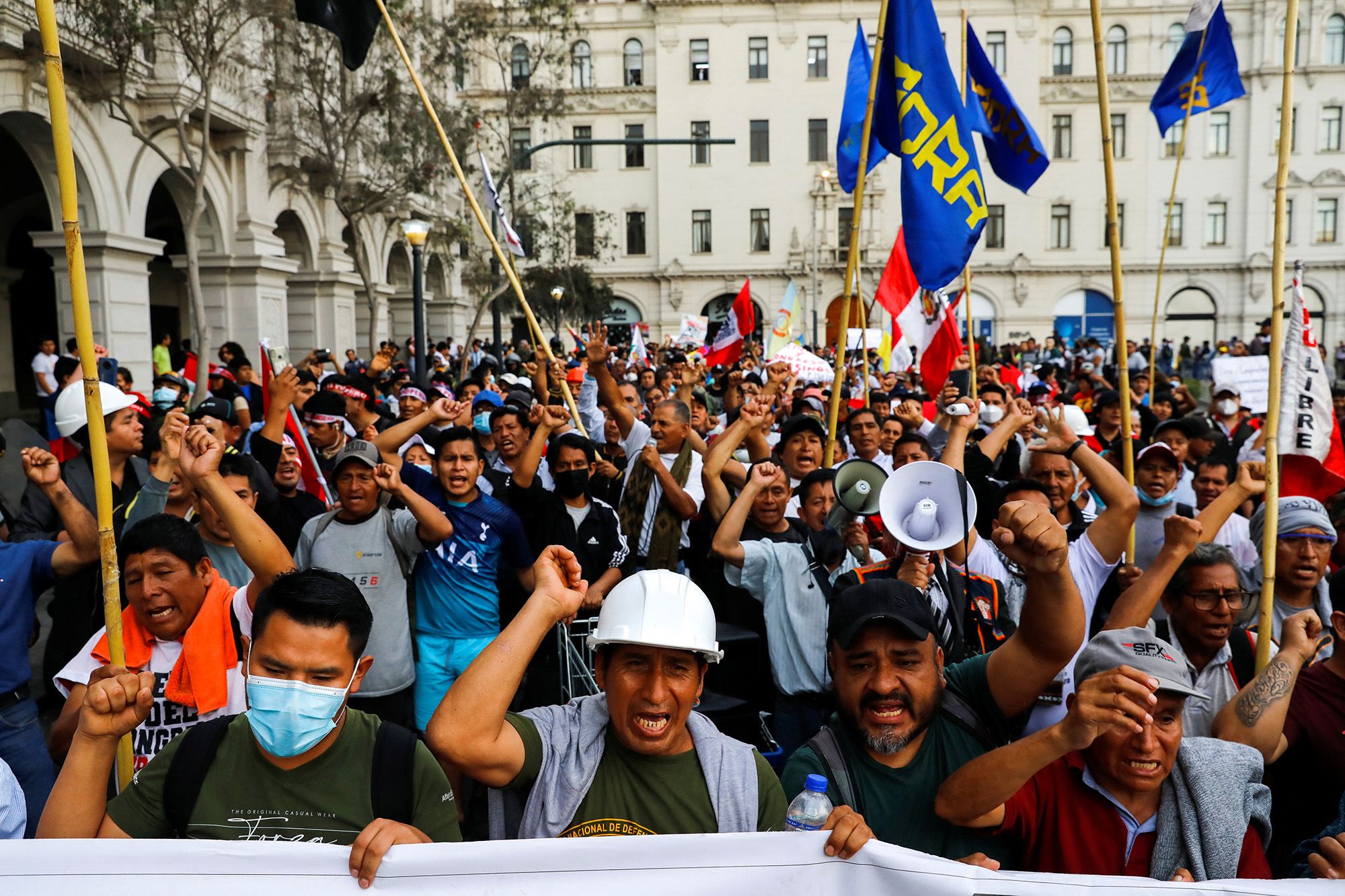Photo Courtesy of CNN
In the past five years, six politicians have held Peru’s presidency – a figure which may soon rise to seven. The newest occupant of the Palacio de Gobierno, Dina Boluarte, assumed office one month ago. Her predecessor, Pedro Castillo, had attempted to dissolve Congress in what amounted to a coup d’etat. Castillo was quickly impeached by a defiant legislature, and his worst policies were quickly expunged by the new government. Boluarte, who was Castillo’s vice president, assumed power through legal means. Nevertheless, many of Castillo’s quasi-Marxist supporters (party motto: ‘Let’s go to Socialism Without Fear! Victory is Certain!’), see her as a turncoat, and hold her commitment to the far left in doubt.
Protesters have taken to the streets not only to demand Boluarte’s resignation, and the dissolution of Congress, but new elections and a revised constitution. Castillo, undoubtedly, was an inept, corrupt leader, and his shameful attempt to undermine the institutions of government drew the ire of the international community. Nevertheless, Castillo’s base – rural voters and native tribes – blame anti-Castillo political elites in Lima for his ouster, whose speed was surprising. They, in particular, are marching against Boluarte’s government, and demanding the release of ex-president Castillo from prison.
Civil unrest is de rigueur for the inefficient, inflation-wracked nations of the Andes, but the Peruvian upheaval has become unique in its scale and violence. Almost sixty people, most of whom were protesters, have died in the clashes with law enforcement. Boluarte has labeled the demonstrators as terrorists, “radicals bleeding the country,” who are under the influence of foreign actors. Accordingly, the president has declared a state of emergency, under which the freedom to assemble is curtailed and soldiers can commandeer any residence as a billet.
The socialists, for their part, have accused Boluarte of genocide and aggravated homicide, backed by the attorney-general. These claims are of course extravagant, but little more so than the idea that the marchers belong to Commie terror groups.
Both groups stand on unstable ground. The protesters show no sign of backing down, but face condemnation from the Peruvian mainstream and regional bodies like the Organization of American States. Boluarte, out of desperation, is attempting to appease the demonstrators. A parliamentary vote is expected to endorse the movement of elections ahead by two years, to the spring of 2024. Even if it passes, further demands will need to be addressed.
These reforms, though, are unlikely to rectify the problems at the root of the upheaval. Castillo remains popular amongst the rural poor because of his origins as a farmer in a humble region of the Andes. His neighbors have been betrayed by decades of corruption and graft in Lima – which affect the rural poor the most. In mountainous agricultural regions, education and public works are of poor quality, and healthcare is ineffective (Peru had the world’s highest COVID-19 mortality rate). One-fifth of the population lives in poverty (under $5.50 per diem). Never mind that Castillo was every bit as corrupt as his predecessors from the elite. The true root of the Peruvian protests is frustration over the inefficiencies of what is a poorly-run but relatively wealthy (as rich per capita as Serbia) nation. Although other Latin American countries struggle with corruption, Peruvians see their government as more ineffectual than any other nationality.. Congress’ disapproval ratings hover around an astonishing ninety percent.
It is clear, then, that somebody needs to wipe the Peruvian political system of corrupt influences, dirty money, and the general malaise that has long weighed on its people. The solution to this is not the one which the current protesters are proposing – reinstating a putschist won’t fix any of their problems – but they are, perhaps, justified in their anger.






